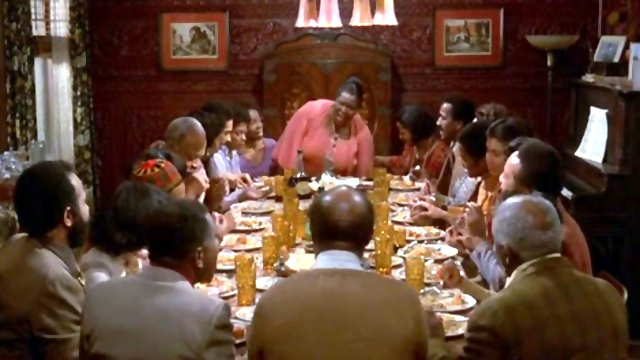Lesson 12 –
Jeremiah 31:31-34 NRSV
31 The days are surely coming, says the Lord, when I will make a new covenant with the house of Israel and the house of Judah. 32 It will not be like the covenant that I made with their ancestors when I took them by the hand to bring them out of the land of Egypt—a covenant that they broke, though I was their husband, says the Lord. 33 But this is the covenant that I will make with the house of Israel after those days, says the Lord: I will put my law within them, and I will write it on their hearts; and I will be their God, and they shall be my people. 34 No longer shall they teach one another, or say to each other, “Know the Lord,” for they shall all know me, from the least of them to the greatest, says the Lord; for I will forgive their iniquity, and remember their sin no more.
Background
You will find words from Jeremiah 29:11 on nearly every bit of graduation gear you can find. This passage talks about the “plans” that God has for us. Along with this theme, Jeremiah 31 focuses on promises and covenants. In your own devotional period, read Jeremiah chapters 29 and 31. Focus on the words “plans,” “covenant” and “promise. What do those words mean to you?
Today’s lesson will focus on God’s plans for healthy change. Read the scripture out loud together. How would you describe your relationship with God?
What’s happening during this passage?
The prophet says that the Lord will make a covenant, or agreement, with the house of Israel and the house of Judah. But it will be different than the one made with the ancestors after God saved them from Egypt. God says that this is a covenant that was terminated even though “I was their husband.” This new covenant will be made such that God will “put my law within them, and I will write it on their hearts.” God promises a relationship between People and God. There will come a day when the people no longer have to say or teach each other “know the Lord,” because it will be understood that everyone knows God. God promises to forget their sins.
Why write the law inside my heart?
God sounds like a parent who is frustrated with a child who is not responding successfully to a set of consequences. “Okay, so when I take the video games away, it doesn’t do anything,” “Sigh, when I put them on time out they still don’t listen,” “They already didn’t get to go to the sleepover, what else will help them understand?” Except, instead of this relationship being described as parent and child, it is described as a marriage. God describes God’s self as their “husband.” In this context, Jeremiah highlights a betrayal of the utmost degree that the people would have broken it.
So instead of doubling down, or becoming harsher, or making the punishment more severe, the Lord promises to “put my law within them, and I will write it on their hearts. I will be their God and they shall be my people.” God promises a relationship coming. It is clear that a list of do’s and don’t’s wasn’t helpful for the people.
Before you move on! God’s relationship happens even before Jesus shows up in the New Testament. Can you think of any stories in the Old Testament (before or after this passage in Jeremiah) where God proves to be a Friend or Provider? Here’s a freebie: Shadrach, Meshach, and Abednego benefited from the relationship, provision and protection of God in the fiery furnace.
What do God’s plans include?
God promises to forgive and “remember their sin no more.” God realized that it was necessary to rethink the relationship and move forward with a different kind of covenant. In this new relationship, God will develop a relationship where the people can access the law in their own heart. No longer will the law be something external. It will be an internalized experience, one that reflects an intimate relationship with a God who is happy to claim us as “my people.” God doesn’t reevaluate the relationship to double down on punishment. God reevaluates and decides that maybe God needs to change God’s expectations. God promises to forgive and forget the sins of the People. And only God can do that.
What questions do you still have of this scripture? How will you commit to journeying with this text this week?
 Connection to Today’s World
Connection to Today’s World
In the historical fiction drama Underground, we follow the story of enslaved people who are trying to escape bondage. Set in Georgia during the 1850’s, we meet several enslaved people on the Macon Plantation. Some enslaved people are uninterested in running; some can only think about freedom. Noah overhears the story of a freedom map in the form of a song. On one of his first attempts at running, he finds himself imprisoned with other former runaways. He learns that someone has taken the directions to freedom and translated them into a song. He is illiterate, but he realizes the words to the song are etched into a wall of the prison. So, he takes a cloth and rubs blood against it to copy the words. He cannot read, but he knows someone else can. He copies the words to freedom and keeps them hidden until he can find someone to read them for him. Eventually, someone does. That song becomes the roadmap to his freedom journey.
We come from a people who did not have access to the written English word, let alone the Bible. We have long had to have the word of God “written on our hearts.” We have used spirituals, folk songs, games, dances, call and response to teach each other the story of God’s love for us. Just because you cannot read does not mean you cannot be free. Someone will help you. And you can help someone else. Embodying the word is not just “nice,” it is imperative. What words do you internalize about God? About your relationship with God?
Journal: How do you react to change? Do you embrace it? Refuse it? Why do you think that is?
Closing: Listen to “Hold To God’s Unchanging Hand,” Chicago Mass Choi.
Time is filled with swift transition,
Naught of earth unmoved can stand,
Build your hopes on things eternal,
Hold to God’s unchanging hand.
Refrain:
Hold to God’s unchanging hand,
Hold to God’s unchanging hand;
Build your hopes on things eternal,
Hold to God’s unchanging hand.
Trust in Him who will not leave you,
Whatsoever years may bring,
If by earthly friends forsaken
Still more closely to Him cling.
Covet not this world’s vain riches
That so rapidly decay,
Seek to gain the heav’nly treasures,
They will never pass away.
When your journey is completed,
If to God you have been true,
Fair and bright the home in glory
Your enraptured soul will view.
Prayer:
Dear God,
We know You are in our study and in our dancing.
You are with us when we do not think we are thinking about You.
We are thankful for your plans for our Good. We know that you conspire for our freedom and our liberation. You want us to be well, you want us to be free, you want us to be happy and whole.
When we internalize violent ideas about you God, help us to interrupt those voices. Whisper compassionate and kind words. We need your “wonderful words of life.”
In Jesus’ name we pray, Amen.





